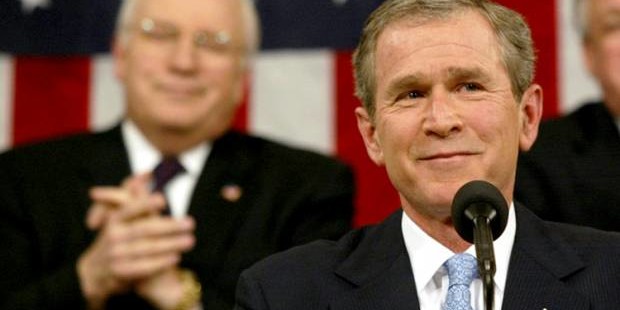
Lapdog media learns nothing, beats war drums again
Have we forgotten Judith Miller already? Or Colin Powell at the U.N.? Before attacking Syria, let’s know the truth
As of this writing, early Thursday morning, some Syrians are scheduled to pay with their lives for America’s “credibility.” The bombarding of an already war-ravaged country is acknowledged as “symbolic,” intended simply to “send a message.” This is an obscenity as great as the one Washington purports to answer. Another Middle Eastern society will come further unstitched, and those doing the unstitching will have nothing on offer to replace it.
The U.S. long ago squandered what credibility it may once have enjoyed or desired in the Mideast. If credibility were the cause, Washington need do no more than start dismantling the Potemkin village it has made of the principles it tediously mouths.But this thought goes nowhere these days.
And so the U.S. stalks into another war in the Middle East. Unlike the Iraq and Afghanistan wars—American works of art, both—the conflict in Syria is somebody else’s canvas. But apart from this, the similarities among these three instances of Washington’s wanton hostility toward uncompliant regimes are astonishingly similar.
Make that tragically similar. History proceeds, we Americans insist on the virtue of ignorance, on learning nothing and knowing nothing. And what we are about to get is what we get, predictably and always. We are a singular people, no question. Maybe even exceptional.
As of these hours, the Obama administration is on the record as rejecting any deliberations the U.N. may judge just. On Wednesday evening, British Prime Minister David Cameron gave in to Labour Party objections to his support for Washington’s invasion plans. Britain now wants to see a U.N. report on the alleged chemical attacks from weapons instructors, and to give the Security Council process more time.
But listen closely to President Obama speaking Wednesday on PBS’ “Newshour” and it is clear the U.S. could go it alone against the Syrian regime if need be. “We’re prepared to work with anybody – the Russians and others – to try to bring the parties together to resolve the conflict,” Obama said. “But we want the Assad regime to understand that by using chemical weapons on a large scale against your own people … you’re also creating a situation where U.S. national interests are affected, and that needs to stop.”
So not even the fig leaves of international assent matter now.
Events since the apparent attacks with chemical substances in four residential districts of Damascus last week bear all the marks of a disgraceful bum’s rush. Given that the cruise missiles the Obama administration is about to send into Syria will bear the chalk signatures of every American, like a World War II bomb, we are the chumps of the piece (once again, that is). This is a shared responsibility. It makes us complicit.
The fabrications and duplicity put before us as Washington prepares to “respond” to the latest savagery in Syria are so strangely formed that it is hard to follow the bouncing ball. The Obama people have changed their story diametrically before our eyes, casting aside all consistency, self-evidently making it up as they go along. And it is the same story recited countless times before. Maybe it is the only story Americans can articulate or grasp—a disturbing thought, but one begging consideration at this point.
Stories require media, of course, and there they are, on the case in the Syrian crisis and delivering the goods with irresponsible single-source stories dressed up as responsible multiple-source stories. When was it that journalists began thinking of themselves as national security operatives? It is getting unbearable, this errand-boy act in the face of power. If journalists did their jobs properly we would get into fewer messes such as Syria and would be more nationally secure. As it is now, the press is a defective piece in the democratic mechanism.
Instantly after news of chemical weapons and fatalities arrived last week, Washington and its allies began clamoring for Syrian President Bashar al-Assad to allow a team of U.N. inspectors to examine the sites in question. It absolutely had to be. Nothing else would do. We read this.
Within 48 hours, the Obama people asserted that any such scrutiny was beside the point. When Assad gave assent to the U.N. team’s visit, which was not much delayed given the shelled zone is a battlefield, he was “too late to be credible.” All the evidence would have “degraded,” as we also read.
Too late? Degraded? The U.N. team is one of experts. They are in Syria to examine sites where chemicals were allegedly used months ago and would not be there if the question of degradation were authentic. This we did not read, with one exception. On Wednesday the New York Times’ science correspondent, William Broad, had the integrity and sense to cite non-government sources—Yikes!—to point out that chemical agents used in weaponry do not dissipate for a woefully long time. Skeptics can ask the Vietnamese.

